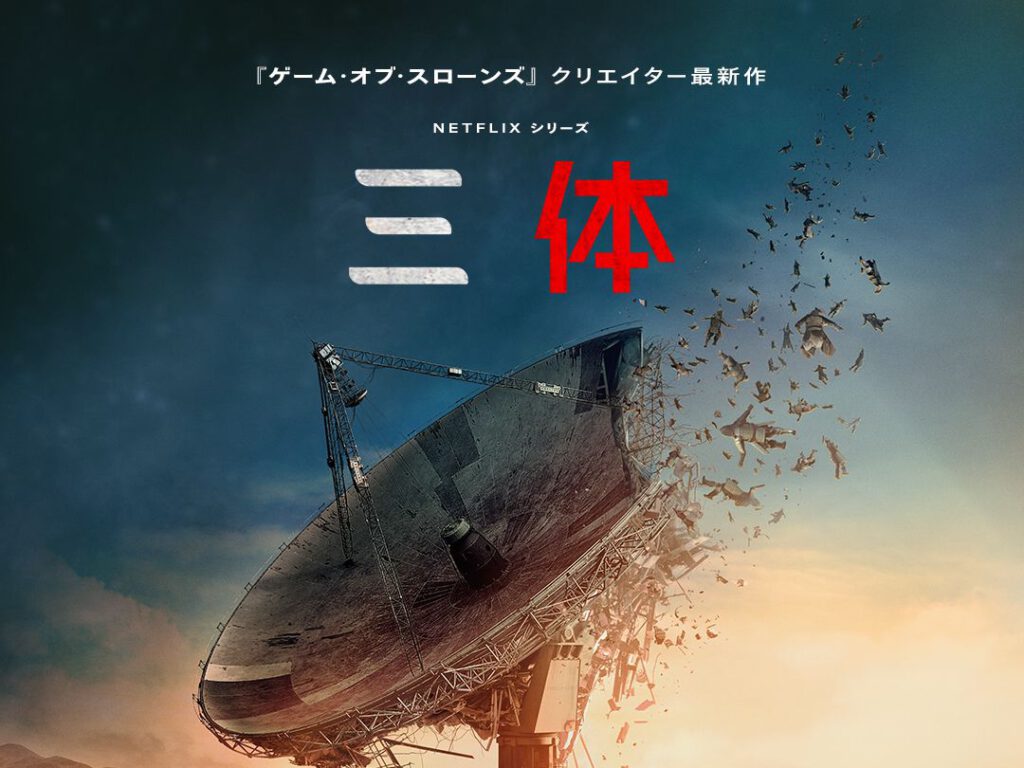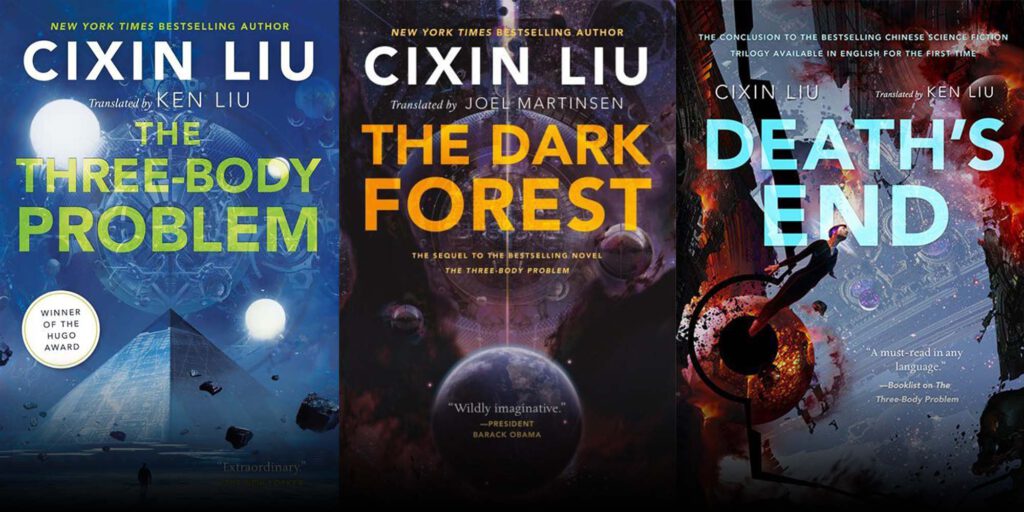
On March 21, 2024, Netflix’s Three Body Problem TV series debuted. With over 200 million viewers across 190 countries, Netflix has made Three Body Problem its most significant investment yet, allocating substantial resources to the series.
Each episode carries a staggering price tag of up to $20 million, totaling a $160 million investment. The promotional efforts span the globe, including prominent presence at major events, as well as utilizing extensive mid-air 3D special effects.
As the world’s foremost streaming platform, Netflix is placing its highest stakes on Chinese science fiction. Regardless of the outcome, one thing is certain, Three Body Problem will spark immense interest in the original novels and Chinese sci-fi intellectual property among a vast new audience.

The series introduces a fascinating concept: cultural reflexes. Intrigued by Earth’s civilization, the Trisolaran produces a myriad of literary works mirroring human creativity: from movies and novels to poetry, music, and paintings. This phenomenon offers humanity a unique perspective, allowing us to reconnect with ourselves through an alien lens.
Interestingly, Three Body Problem itself acts as a mirror of culture. Even now, discussions among American fans on Reddit continue to debate Cheng Xin’s prowess as a writer. In Japan, readers perceive the novel’s conclusion as a tale of love and redemption, culminating in a happy ending. On domestic video platforms, reactions from foreign viewers remain a perennial topic, sparking ongoing and lively debates.
Now, Three Body Problem is poised for its first international adaptation. A member of the creative team at Netflix described the visuals of the Three Body Problem VR game as the Olympics of Design.

Screenwriters David Benioff and D. B. Weiss admitted to feeling genuinely apprehensive, acknowledging the weight of expectations surrounding the project. Their interpretation, adaptation, and portrayal of Three Body Problem will provide a new reflection of themselves.
One of the hallmarks of Liu Cixin’s novels is their epic scale, reminiscent of the Golden Age of Science Fiction.
Spanning vast stretches of time and space, Three Body Problem unfolds as a narrative of immense scope. Characters traverse different eras and locations, with minimal overlap, impacting humanity across millennia. Such a narrative, spanning millennia and impacting all of humanity, naturally lends itself to expansion within its original context.

The Trisolaran, with the assistance of ETO, enforce intimidation tactics and technology blockades worldwide, allowing for the introduction of original characters and fresh storylines.
In the Three Body Problem VR game, each player experiences a unique version, akin to a single-player game with individual progressions. Players unlock different characters and encounter varied storylines.
Wade’s belated introduction in Three Body Problem 3 presents fertile ground for adaptation. His multifaceted involvement in Cheng Xin’s life—ranging from his contributions to the Planetary Defense Council’s Strategic Intelligence Agency to his pivotal role in developing warp technology—offers ample narrative potential. The whitewashed portrayal of popular characters, such as Wade, often serves as prime material for adaptations, prompting speculation about a potential Vader Biography.

Netflix’s first season of Three Body Problem set in the United Kingdom, featuring Wadeleading a team of physicists against the ETO, signals a global narrative expansion.
Liam Cunningham, portraying Wade, emphasizes the narrative’s global scope, highlighting its inclusivity and diverse perspectives.
Netflix’s influence extends to elevating interest in Chinese sci-fi, akin to successful adaptations of manga-based series like One Piece. The popularity of Three Body Problem in Japan has ignited a Chinese SF fever, showcasing the breadth and depth of Chinese science fiction literature. The forthcoming Netflix adaptation promises to further bolster interest in Chinese sci-fi on a global scale, potentially spurring increase book sales and renewed appreciation for the genre.

The vast wealth of information, incredible concepts, and distinct perspective on Chinese culture and the cosmos encapsulated within the Three Body Problem has garnered immense attention. Its significance transcends mere adaptation into a Netflix blockbuster; it symbolizes a global fascination and a platform for diverse ideas to converge.
Reflecting on literary history, timeless classics like Journey to the West, Dream of the Red Chamber, Lord of the Rings, and Star Wars have continuously undergone reinterpretation and adaptation. Even the world’s first science fiction novel, Frankenstein, remains a subject of ongoing reinvention. To truly embed something in history, one must not shy away from deconstruction, reconstruction, or reinterpretation. Embracing diverse perspectives offers a chance to unveil the multifaceted brilliance of the original work.
As Chinese science fiction embarks on a global journey, each adaptation, including those by Netflix, holds significance. Europeans, Japanese, Africans, and people from all corners of the globe will shape their own interpretations of the Three Body Problem in the years to come.
(Source: Sixth Tone, Polygon, CGTN, Cartoon Brew)



